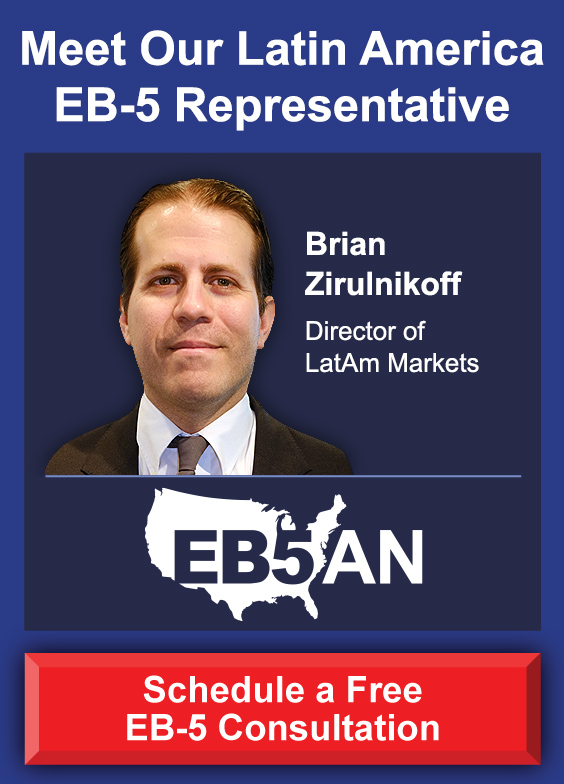
There are two questions regarding EB-5 dealings that commonly come up in the legal arena. The first is whether individuals or entities who are recruiting EB-5 investors are permitted compensation if they are not registered broker-dealers. The second is whether a limited liability company (LLC)’s interest in an EB-5-funded new commercial enterprise (NCE) can legally be considered a “security.” These are complicated questions, and looking at recent federal court cases can clarify how these situations are viewed from a legal standpoint. In a recent June 2017 ruling in the case SEC v. Hui Feng and Law Offices of Feng & Associates, the U.S. District Court for the Central District of California found that the LLC interest in that case was indeed a “security” and that the attorney and his firm had acted as broker-dealers without being registered as such.
The Application of Securities Laws to EB-5 Investments
Within federal securities laws, a “security” encompasses a wide range of instruments that could be sold as investments. Many EB-5 investments are in the form of partnerships or LLC interests, and while neither of these terms are specifically listed in the laws as being “securities,” they can be considered as falling under the umbrella term “investment contracts,” which is listed as a qualifying security. If an investment does not qualify as a security, investors lose out on having the protection of securities laws and are more vulnerable to being taken advantage of. Thus, it is important to determine whether or not the EB-5 investment can qualify as a security. In the SEC v. Hui Feng and Law Offices of Feng & Associates, the defendants contended that the LLC interests in their case should not qualify as securities and thus should not be protected by securities laws.
Investment contracts were defined by the U.S. Supreme Court in SEC v. W. J. Howey, 328 U.S. 293, 298-99 (1946). The Supreme Court established three requirements for an instrument to be categorized as an investment contract: 1) Money must be invested 2) in a common enterprise 3) with an expectation of profits. The defendants in the Feng case argued that in their situation, the third requirement was not met, as the investors did not expect any profitable return, and making a profit was not their motive since their expected return was less than the original investment combined with all the fees they had to pay. Since the motive was purely permanent resident status in the United States, they argued that this type of investment was not covered under securities laws.
When the court decided to rule against the defendants’ arguments, it pointed to EB-5 program regulations, specifically statements that investors had to keep their capital at risk for the entire investment term with the goal of receiving a return. It was also noted that the paperwork involved in this particular case referred to possible profit and also described the EB-5 investments using the term “securities.” The court also drew a clear line between fees associated with the program and the actual investment, stating that the fees would not be calculated in when calculating the actual return amount and that there was nothing given in their arguments that would support the defendants’ position.
While the Feng case defendants lost their arguments in court, they did make some reasonable points. It is a no-brainer that EB-5 investors have permanent resident status as their primary goal rather than obtaining a profit from their investment. However, because just the potential for a profitable return is generally adequate to satisfy the requirements, most court rulings would support the position of the Securities and Exchange Commission (SEC).It’s a reasonable assumption, therefore, that EB-5 investments are considered as “securities” in a court of law and subject to securities laws regulations and protections.
Entities Acting as Broker-Dealers Without Registering
Individuals and entities are prohibited from brokering securities transactions unless they have completed the required registration to become broker-dealers. This ensures that brokers are trained and educated on relevant regulations and their responsibilities towards the parties involved in the transaction, particularly the vulnerable investors. According to securities laws, a broker is any individual who is actively engaged in processing securities-related transactions on behalf of someone else. At the federal level, the courts typically refer to SEC v. Hansen in 1984 to decide if an individual or entity has acted as a broker. The ruling in this case set forth several factors that can be evaluated to determine this. All but one of these factors were identified in the Feng case and are listed below.
- Did the individual or entity receive transaction-based compensation (like commission) rather than regular pay (like salary or hourly wages)? In the case of Feng, the individuals did receive commissions or referral fees when they sent clients to regional centers.
- Did the individual or entity sell securities from other issuers? In the case of Feng, EB-5 transactions had been conducted since 2010, with additional securities transactions being conducted from 2003 to 2014.
- Was the individual or entity involved in negotiations between the parties involved in the transaction? In the case of Feng, the individuals negotiated terms on behalf of their clients and worked with various regional centers.
- Did the individual or entity advertise on behalf of clients? In the case of Feng, they did.
- Did the individual or entity advise the investors or provide appraisals regarding the investment? Yes, this did occur in the Feng casewhen the defendants recommended particular EB-5 regional centers to individual clients and also researched potential EB-5 projects on behalf of their clients.
- Did the individual or entity actively seek out investors? Yes, they did.
- Does the individual or entity regularly participate in securities-related transactions. Yes, they do.
With only one factor from the Hansen case not being relevant in the Feng case, the court affirmed that the defendants had acted in the role of brokers and would not be exempt from registering as such.
With a total of eight factors that decide whether an individual or entity has acted as a broker, the process of making this determination is complicated and lengthy. There have been cases where individuals receiving compensation for a transaction have not been classified as brokers for various reasons (e.g., SEC v. Kramer). Since the SEC generally argues that compensation equals broker status, parties to securities transactions can safely assume that they will be treated as such.
Disclosure Decisions: What Is Required?
According to U.S. securities laws (both state and federal), all securities offerings must be promptly registered with the appropriate securities commissions if they are not exempt. EB-5 offerings are usually considered exempt and thus not registered. While this removes certain disclosure requirements that normally apply to securities offerings, it does not eliminate the requirement to disclose all material facts to investors as a protection from fraud.Deciding whether or not a fact is material many times falls on courts after the fact, and this can be a difficult decision to make. As a general rule, if a fact is significant to an investor’s investment decision, it should be disclosed.
In the case of Feng, the defendants had neglected to disclose the commissions they received for referrals to the investors and, in fact, had indicated to investors that they were not seeking to find investors at all. They were found guilty of securities fraud because the court determined that if the investors had known about the commissions, they may have selected a different investment that would have been less costly or asked for a portion of the commissions that the defendants received. The court also ruled that commissions for making referrals could create a conflict of interest for the parties and should be disclosed to the investors.
For securities offerings that have to be registered, issuers are mandated to provide detailed information about any form of commission, fees, or compensation that is paid to any agents involved in the process of recruiting or completing the transaction. While that mandate does not specifically include information about commissions earned by EB-5 middlemen, most agree that those amounts should be disclosed to the parties. How much detail must be disclosed is a subject of contention, however. Disclosure may include a brief statement that a middleman has been retained to guide investors or it could name the parties involved and give amounts of commission received. Once concern regarding too much disclosure is that it creates a disadvantage for the issuer during negotiations. If the compensation being received is a reasonable amount, minimal disclosure may be all that is required, whereas more detailed disclosure is needed when there are high amounts of compensation or some other uncommon aspect to the commissions being received.
Despite the current state of ambiguity regarding the need for disclosure, it is expected that legislative changes in the future will clarify regulations and mandate specific disclosures.
Violations of Securities Laws
Individuals or entities that violate securities laws are punishable by sanctions. In the resent Feng case, the defendants had to pay back all of their commissions in addition to interest and additional penalties, which added up to a substantial amount of money.
In addition to monetary sanctions, both registered broker-dealers and unregistered individuals acting as such could also be suspended from the entire industry for fraudulent behavior. Attorneys and accountants committing misconduct could be barred or suspended from cases involving the SEC. Criminal sanctions can be imposed as well, including possible fines and jail time, on individuals or entities deliberately violating securities laws.
As seen in the above case, the determination of whether an EB-5 investment qualifies as a security and whether individuals or entities receiving commission are classified as brokers” is a complicated process that takes many factors into consideration. To avoid errors and potential ramifications, all parties involved with EB-5 investments should seek out experienced counsel to understand the regulations and receive guidance on how to adhere to them.









